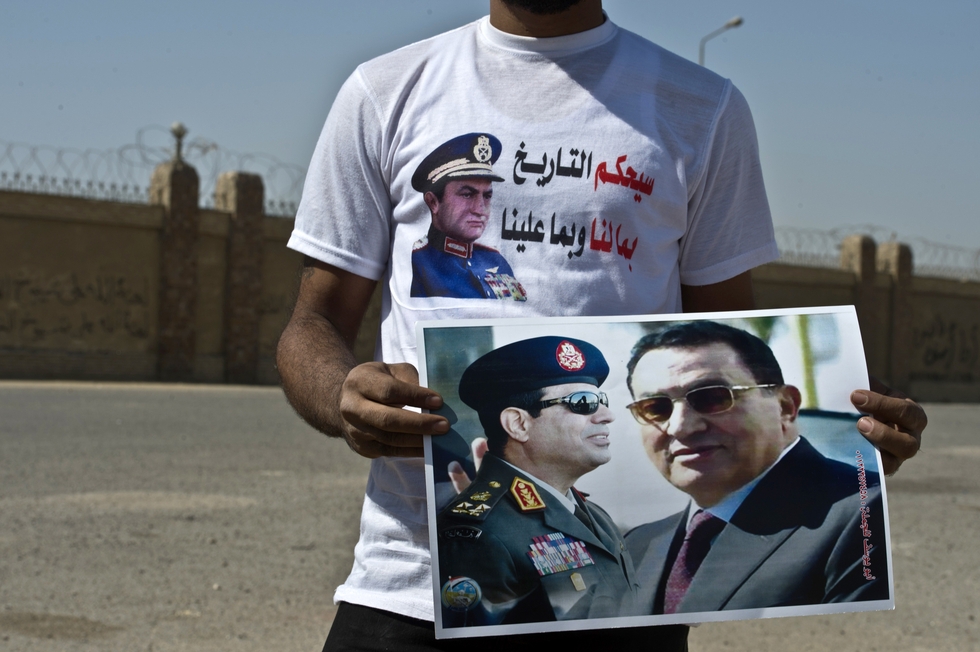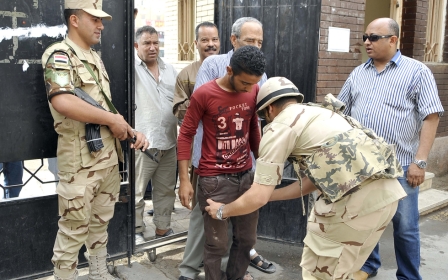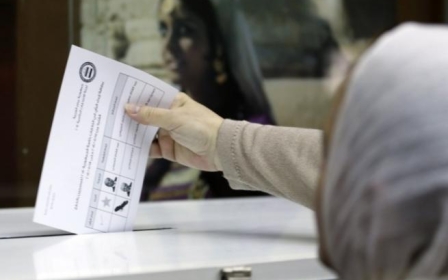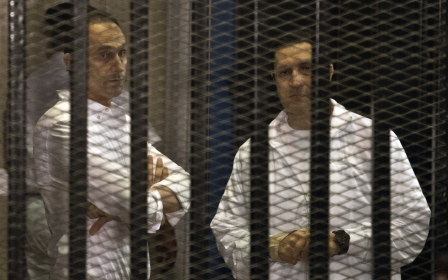Timeline: Key dates since fall of Egypt's Mubarak in 2011

As Egyptians prepare to vote in legislative elections on 18 October, here are key developments since president Hosni Mubarak stepped down after 30 years of rule:
2011
- February 11: Mubarak resigns and hands power to the army which suspends the constitution and dissolves parliament. He quits on the 18th day of mass protests which erupted after a revolt toppled Tunisia's ruler, and after violence leaves at least 850 people dead. The army promises a "peaceful transition" and elections.
- November 28: In the first phase of post-revolt parliamentary elections, Islamists win about two-thirds of the seats, half of which go to the Muslim Brotherhood.
2012
- June 30: The Brotherhood's Mohamed Morsi wins a presidential election with 51.7 percent of the vote, becoming Egypt's first freely elected, civilian leader.
In August: Morsi sacks then army chief Hussein Tantawi, Egypt's de facto leader after the fall of Mubarak, replacing him with General Abdel Fattah al-Sisi.
2013
- July 3: Sisi ousts Morsi after massive protests against his year-long rule and freezes the constitution. Morsi denounces a "coup" as authorities crack down on his supporters.
- August 14: Security forces move against two pro-Morsi protest camps in Cairo, killing about 700 people. Hundreds more have been killed since then and tens of thousands arrested. Hundreds including Morsi have been condemned to death in mass trials denounced by the United Nations.
In late December the government declares the Brotherhood a "terrorist organisation".
2014
- January 14-15: 98.1 percent of voters approve a new constitution reinforcing the military's powers. The "no" camp were not allowed to campaign and the vote results were widely disputed.
- June 8: Sisi sworn in after being chosen as president in a May 26-28 election with 96.91 percent of the vote, after stamping out all opposition.
2015
- February 10: Sisi announces during a visit by Russian President Vladimir Putin that Cairo and Moscow have agreed plans to jointly build Egypt's first nuclear power plant.
On August 26 Sisi meets Putin during his third visit to Russia in a year, as Egypt, a long-term US ally, seeks to diversify its alliances and armaments.
- June 29: State prosecutor Hisham Barakat killed in a Cairo car bombing, the most senior government official to be killed since the coup against Morsi.
His death comes despite a major military campaign since 2013 against Islamic State group-linked militants in the northern region of Sinai.
- October 10: Egypt signs a deal with France to buy two Mistral warships. Visiting French Prime Minister Manuel Valls says Paris believes the world needs a "strong and stable Egypt".
In February, Egypt had become the first foreign buyer of French Rafale multi-role warplanes.
Middle East Eye propose une couverture et une analyse indépendantes et incomparables du Moyen-Orient, de l’Afrique du Nord et d’autres régions du monde. Pour en savoir plus sur la reprise de ce contenu et les frais qui s’appliquent, veuillez remplir ce formulaire [en anglais]. Pour en savoir plus sur MEE, cliquez ici [en anglais].




